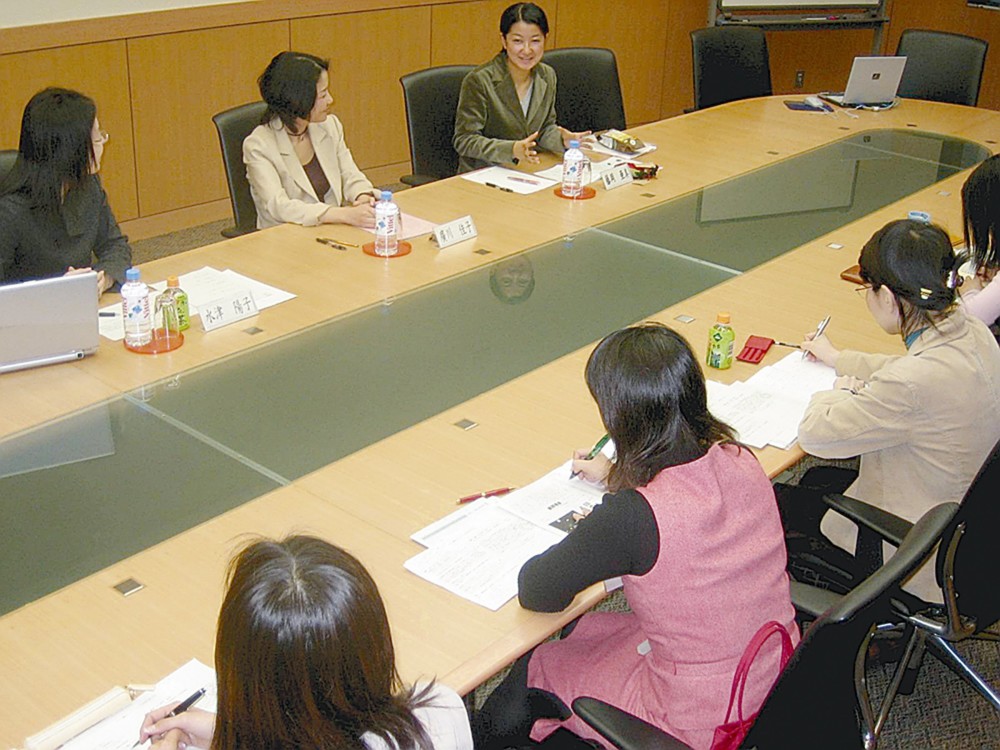By Shusuke Murai
Japan Times, Tokyo
WWR Article Summary (tl;dr) At the 21st International Conference for Women in Business, the focus was on inspiring Japanese women to dream big and make their mark in the workplace. Before the enactment of the Equal Employment Opportunity Law in 1985, almost all full-time job opportunities at Japanese companies were only open to male students
Japan Times, Tokyo
Women in Japan should not hesitate to dream big and have the confidence to develop their careers in order to boost diversity in the workplace, panelists at Japan’s largest annual conference for working women said.
“Women tend to focus on doing things they are skilled at, whereas men tend to look for challenges in their careers,” said Fujiyo Ishiguro, a keynote speaker at the event and president and CEO of digital marketing firm Netyear Group Corp.
“Think about what you really want to do and move toward it, so you will be able to expand your possibilities and gain positions with more responsibilities,” she said.
At the 21st International Conference for Women in Business, held last week in Tokyo’s Odaiba district, more than 50 leaders in various sectors, including company executives, educators, lawmakers and journalists, took the podium to discuss topics ranging from business and politics to education and social media.
Over 1,000 people from Japan and abroad participated in the event, which was organized by the consultancy ewoman, Inc. and supported by The Japan Times and other firms.
Ishiguro, who had founded a high-tech specialty consultancy in Silicon Valley and advised such firms as Yahoo!, Netscape, Panasonic and Sony before starting Netyear Group, said it was not easy when she was a job-hunting student at Nagoya University.
Before the enactment of the Equal Employment Opportunity Law in 1985, almost all full-time job opportunities at companies were only open to male students, Ishiguro said. But after taking a part-time position, she did not give up and eventually landed a full-time job at Nagoya-based printer maker Brother Industries, Ltd. as an international sales worker.
Even today, hurdles remain for women to clear, such as in raising funds when starting their own businesses or securing important positions after coming back from maternity leave, Ishiguro said.
“But the most important thing for women is to stay confident and be ambitious about achieving greater success,” she said.
This year’s theme, “Think Big,” was chosen to encourage women to stand independently and take a new step forward to build a better career, said Kaori Sasaki, CEO of ewoman.
“When facing an issue at work, think about what you would do if you were a manager, or even a prime minister,” she said in the opening speech. “Expand your imagination and stretch your mind. . . . I want all of the participants today to take this opportunity to step forward to a new stage.”
The event also touched on the possibility of a female prime minister in Japan.
In a session hosted by two prominent Liberal Democratic Party female lawmakers — Seiko Noda, a former chair of the party’s executive council, and Tomomi Inada, the party’s current policy chief — and award-winning novelist Main Kohda, speakers agreed the possibility is no longer far-fetched.
“I say for a fact that the day a woman becomes prime minister of Japan is definitely coming close,” said Noda, who challenged Prime Minister Shinzo Abe’s position last year by trying to run for the LDP presidency. Her attempt failed, as she could not gather enough support from party members to file her candidacy.
Noda said a female prime minister will become a reality “by 2019,” after Abe’s term as LDP’s president ends in September 2018.
“Even former Prime Minister Junichiro Koizumi, who was widely popular, followed party rules and stepped down. So I believe the prime minister will certainly follow the rules,” Noda said of Abe not trying to extend his stint.
“Being a woman doesn’t give someone an advantage or disadvantage toward becoming the prime minister,” Inada said, adding that whether man or woman everyone should work hard to attain their goals.
Among the guest speakers was Koizumi’s son, Shinjiro, 35, who is also a popular LDP lawmaker.
In a dialogue session focusing on Japan’s depopulation, Koizumi said Japan as a nation has lost confidence due to its population decline. However, he stressed that depopulation is “inevitable” and that the richness of a country isn’t merely defined by the size of its population.
“Think outside the box,” he told the audience and urged them to consider how to build a society after depopulation, rather than worrying about how to stop the population decline.
“Even if Japan is no longer a nation of 120 million people, Japan is still Japan,” he said. “This country can remain strong if everyone continues efforts to polish their skills, develop their ability to make their own decisions and act toward achieving their own goals.”
Some male leaders at the conference pledged to improve working conditions for female workers.
Akira Matsumoto, chairman and CEO of snack food maker Calbee Inc., said he was “desperate” to promote more women to managerial positions, as his company cannot survive an increasingly diversified business culture if it is dominated by male managers.
Since Matsumoto took his current position in 2009, the percentage of female managers in Calbee had increased from 5.9 percent to 22 percent as of April. He has vowed to raise the figure to 30 percent by 2020.
The hardest thing to do when making such a change is to replace a manager, Matsumoto said, adding some people disagree with the idea of promoting female workers to managerial positions.
“There is no difference between men and women in terms of ability. If some people cannot fully demonstrate their capabilities at work, I believe a bad working environment or a bad company system are often to blame,” he said.














































































































































































































































































































































































